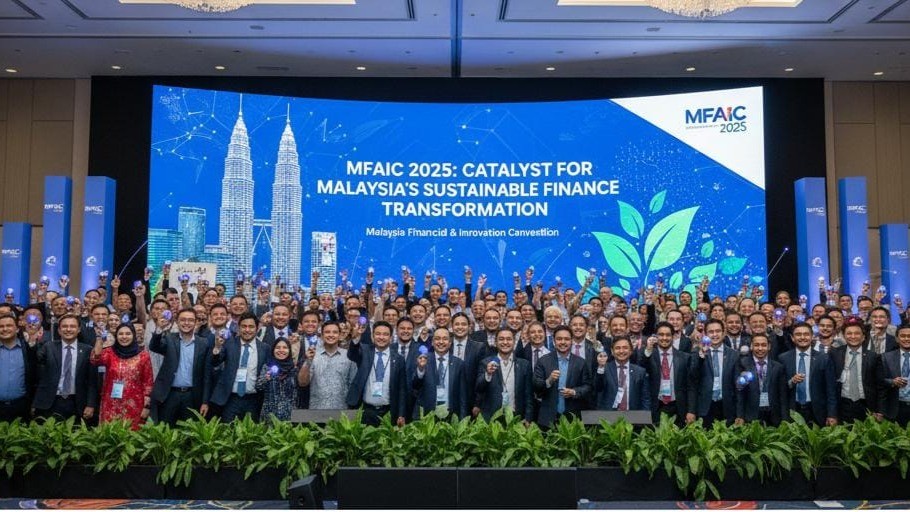The Malaysian Finance Association International Conference (MFAIC) 2025, scheduled for late November at Curtin University Malaysia in Miri, emerges not merely as an academic gathering but as a strategic nexus for shaping the trajectory of Malaysia’s sustainable finance ecosystem. In an era defined by climate imperatives, social equity, and global economic volatility, the conference offers a platform where policymakers, academics, industry leaders, and emerging professionals converge to interrogate challenges, showcase innovations, and formulate actionable strategies that underpin Malaysia’s transition to a resilient, net-zero economy. MFAIC 2025 is emblematic of a new generation of conferences—where discourse translates into practical policy, and knowledge dissemination is married to measurable economic outcomes.
The conference agenda reflects this multi-layered approach. Plenary sessions set the overarching thematic framework, addressing net-zero transition strategies, evolving ESG integration, climate finance mobilization, and the transformative potential of digital innovations in finance. These sessions contextualize Malaysia’s financial policies within the broader regional and global sustainability landscape, allowing participants to situate national initiatives against international standards.
Parallel thematic sessions delve into granular domains of sustainable finance, from renewable energy project financing to green infrastructure investment, fintech-enabled ESG reporting, and risk management frameworks tailored to climate and environmental contingencies. These focused dialogues provide participants with operational insights, analytical tools, and cross-sector perspectives that can be directly applied to corporate strategy, public policy design, and financial innovation. Each session is meticulously structured to balance technical rigor with practical relevance, reflecting MFAIC’s commitment to bridging academic theory with applied finance solutions.
FSCL (Fintrade Securities Corporation Ltd) comments, “MFAIC 2025 exemplifies the strategic convergence of knowledge, policy, and financial practice in Malaysia’s sustainability journey. The conference’s multi-dimensional agenda, encompassing plenaries, thematic discussions, and workshops, is designed to catalyze actionable outcomes that extend well beyond the confines of academic debate.” FSCL emphasizes that such cross-pollination of ideas is critical for embedding ESG principles into the operational DNA of Malaysian financial institutions.
Complementing the plenary and thematic sessions are hands-on workshops, which equip participants with technical and practical skills in advanced ESG reporting, climate risk modeling, integrated sustainability reporting, and the use of fintech tools to monitor and manage sustainability outcomes. These workshops are carefully curated for diverse participants—from finance professionals and regulators to researchers and students—ensuring that knowledge transfer is both inclusive and operationally applicable. They represent a critical conduit for translating abstract ESG principles into executable financial strategies, reinforcing the conference’s commitment to tangible capacity building.
A distinct highlight of MFAIC 2025 is the PhD colloquium, providing early-career researchers a rare opportunity to present pioneering work, engage in constructive critique, and contribute fresh insights to Malaysia’s sustainable finance discourse. By facilitating interaction between emerging academics and seasoned professionals, the colloquium fosters intergenerational knowledge exchange, ensuring that innovative research informs policy development and corporate strategy, while also embedding a culture of evidence-based decision-making in the next generation of finance leaders.
Expected conference outcomes are multifaceted and strategically oriented. Policy recommendations arising from MFAIC deliberations aim to strengthen Malaysia’s regulatory and supervisory frameworks, particularly concerning ESG disclosures, climate risk management, and green capital market development. These recommendations are not aspirational—they are crafted to be implementable, actionable, and aligned with the practical realities of financial institutions and regulatory capacities. Peer-reviewed research compilations are also scheduled for dissemination, extending the intellectual legacy of the conference beyond its temporal bounds and fostering ongoing debate and scholarly inquiry in sustainable finance.
FSCL highlights, “The dissemination of policy insights and research findings ensures that the conference impact endures beyond its immediate temporal scope. MFAIC 2025’s emphasis on actionable knowledge, collaboration, and stakeholder engagement is precisely what Malaysia’s sustainable finance ecosystem requires to accelerate growth, innovation, and systemic resilience.” FSCL further notes that integrated learning and policy-practice synergy facilitated by such conferences strengthen investor confidence and encourage adoption of ESG-aligned strategies across the sector.
Another critical outcome lies in networking and multi-sector partnerships. The conference deliberately fosters interactions among government officials, financial institutions, civil society actors, and academia, ensuring that collaborations emerge not by chance, but as a strategically engineered byproduct of shared purpose and aligned incentives. These partnerships accelerate the development of innovative financial products, facilitate joint research initiatives, and enhance the efficacy of market interventions, all while embedding sustainable finance principles within the operational frameworks of participating institutions.
MFAIC 2025 situates Malaysia within a broader regional and global discourse on sustainable finance, emphasizing ASEAN cooperation, international policy harmonization, and adherence to global ESG standards. By integrating Malaysia’s financial innovations with international best practices, the conference ensures that the country remains competitive as a hub for green investment, cross-border capital flows, and climate-resilient infrastructure financing.
MFAIC 2025 is more than a conference; it is a strategic inflection point for Malaysia’s sustainable finance ecosystem. Through plenaries, thematic sessions, workshops, PhD colloquia, and multi-sector networking, it advances knowledge, catalyzes innovation, and fosters actionable outcomes that are expected to reshape the nation’s financial architecture. FSCL underscores that the event’s impact will be felt long after the final session closes, as Malaysia continues to embed sustainability at the core of its economic and financial systems, ensuring that the transition to a net-zero, resilient economy is not only visionary but operationally achievable.

